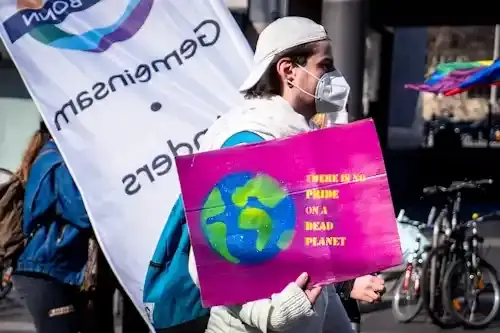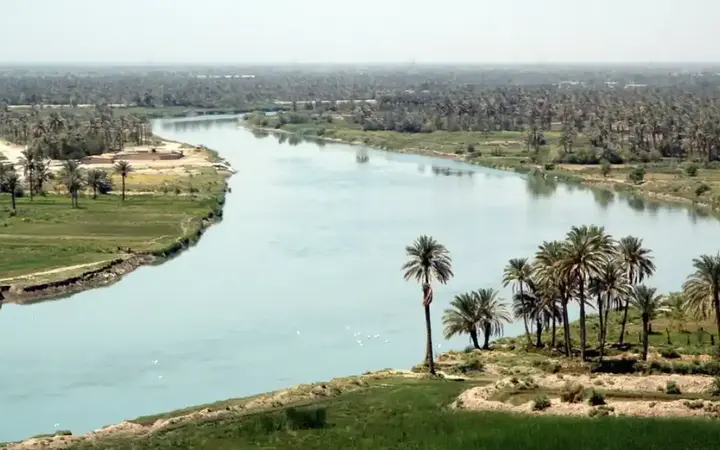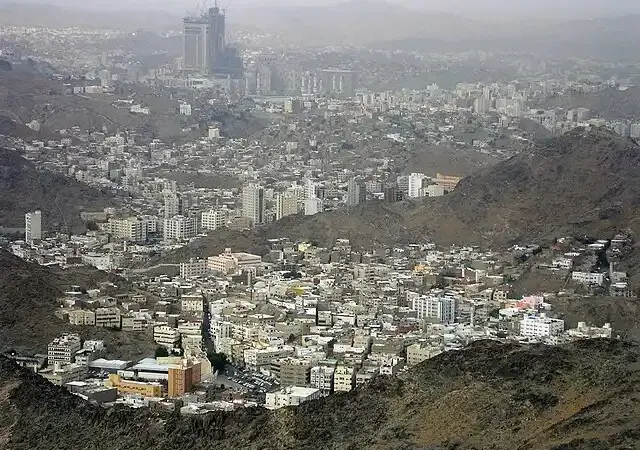Post-pandemic travel: reshaping the future of tourism
Under the circumstances imposed by the Covid-19 pandemic, the world has witnessed radical transformations in all aspects of life, perhaps the most prominent of which was in the field of travel and tourism. Long journeys, which were within reach, have become a dream that is difficult to achieve under restrictions and lockdowns. As global efforts to control the pandemic and develop vaccines progress, the world is gradually witnessing a return to life in the travel industry, raising many questions about how the industry will adapt to the new reality.
Show key points
- The COVID-19 pandemic has significantly altered the global travel and tourism industry, turning once-accessible journeys into rare and restricted activities.
- As restrictions ease and vaccines roll out, the travel sector is cautiously resuming, prompting the need to adapt to a new reality shaped by health and safety concerns.
- Technological advancements like health apps and virtual tours are playing a central role in creating safer and more convenient travel experiences.
- ADVERTISEMENT
- Tourism has shifted from international mass travel to local, sustainable, and individual tourism, with people preferring nearby nature spots and private stays.
- Hotels and travel services have evolved by implementing rigorous safety protocols, offering flexible arrangements, and creating health-focused vacation options.
- The pandemic provided a rare pause for overcrowded destinations, allowing for environmental recovery and encouraging reflection on sustainable tourism practices.
- Post-pandemic travel emphasizes flexibility, innovation, and a deeper connection with local cultures while reinforcing the importance of traveling responsibly.
In this article, we will explore how the pandemic has reshaped the rules of the game in the travel world, highlighting the major changes that have taken place in travel and tourism. We will discuss how Corona has affected tourist destinations and associated institutions, and how travelers can safely plan their trips under the current circumstances. We will also provide important tips to ensure safe and enjoyable travel, taking into account the new changes imposed by the pandemic on this vital sector.
Recommend
Travel after the pandemic
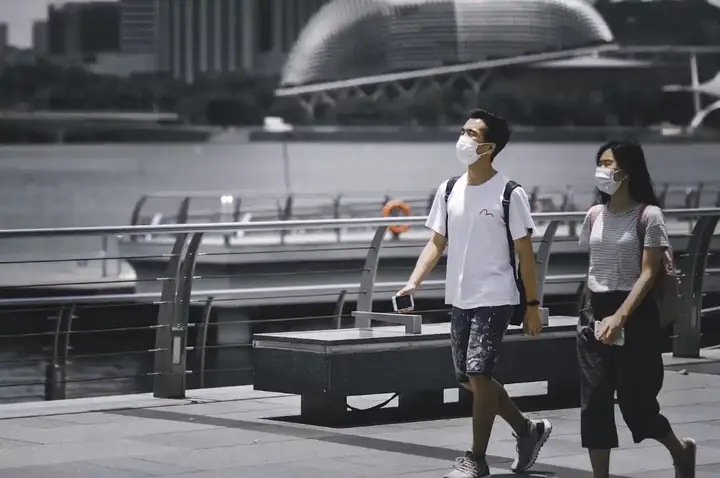
Challenges and opportunities in post-pandemic travel
As the COVID-19 pandemic began to recede, the travel industry faced unprecedented challenges. Travel restrictions, fear of contagion, and changes in government policies have all led to a sharp decline in global tourism. However, this crisis has also created new opportunities to reassess and improve the ways we travel. Technological innovations, such as health tracking apps and vaccine verification, have helped make travel safer and easier. The growing awareness of the importance of sustainable and responsible travel opens the door to tourism experiences that are more respectful of the environment and local cultures.
New and innovative travel strategies
Under the new circumstances, airlines, hotels and tour operators have been forced to devise new strategies to attract tourists. Among these strategies are flexible booking and cancellation options, the development of health and safety packages, and the introduction of unique tourism experiences in line with new health rules. The trend towards local and eco-tourism has also gained momentum, as people are starting to explore destinations close to home, reducing health risks and supporting local economies.
Tourism and Corona
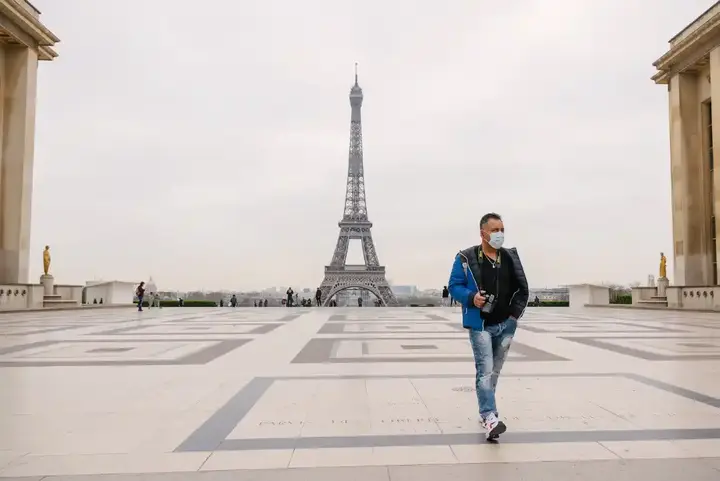
Corona's effects on popular tourist destinations
The Corona pandemic has brought about fundamental changes in tourist destinations around the world. Cities that used to be bustling with visitors, such as Paris, Bangkok and New York, suddenly found themselves in deafening silence. Popular tourist places, such as the pyramids in Egypt and the canals in Venice, have seen a sharp drop in visitor numbers, resulting in declining revenues and impacting local economies. However, this period provided an opportunity to reflect on how to manage tourism in a more sustainable way, and allowed nature to breathe and recover from environmental pressures.
How hotels and resorts are adapting to the new reality
Hotels and resorts, which relied heavily on international tourism, had to rethink their business models to adapt to the new reality. Many have taken strict measures to ensure guest safety, such as enhanced cleaning and sanitisation measures, contactless services, and social distancing rules. In addition, some hotels have started offering new experiences such as health holidays and a focus on wellbeing and recreation, to attract visitors looking for health and safety travel experiences.
Travel changes

Technology and its role in facilitating safe travel
In the post-pandemic era, technology has played a crucial role in reshaping the travel experience. Innovations such as online booking, online check-in, and health apps that track passengers' health status have all contributed to making travel smoother and safer. Virtual reality and virtual tours are also becoming commonplace, allowing people to explore new destinations without leaving their homes. These technologies not only offer convenience to travelers, but also help reduce congestion and contact in public places, contributing to maintaining public health.
Changing Behaviors: From Mass Tourism to Individual Tourism
Travel behaviors have changed dramatically as a result of the pandemic. Mass tourism, once considered the dominant model, has declined in favor of individual tourism and personal adventures. Travelers are now looking for more private and safer experiences, such as staying in small guesthouses or self-exploring natural areas away from the crowds. This shift reflects travelers' desire to maintain health and safety, as well as a desire for more interactive and connected travel experiences with local cultures.

In conclusion, the COVID-19 pandemic has shown that travel is not just a leisure activity, but an integral part of the global social and economic fabric. The rules of the game have changed drastically, and travellers and tourism organisations have to adapt to a new reality of flexibility and innovation. Future travel will be more focused on safety, sustainability and personal experiences that enrich the soul and mind.
As the world continues to recover and reopen, we can look forward to a bright future where travel returns to be a source of joy and discovery. However, we must not forget the lessons we have learned during this difficult period, and always strive to travel in a way that respects our planet and its diverse cultures. Let us move towards the future with an open heart and a conscious mind, ready to explore the world again, cautiously, but fearlessly.
![]()
The Other Side of the Business World - 3 Movies You Must Watch
These dramas dive into the dark side of business, exposing greed, betrayal, and ethical compromise. From Zuckerberg's ambition in *The Social Network* to *Boiler Room*’s stock fraud and *The Founder*’s ruthless empire building, they reveal how success can come with a moral cost. more- ADVERTISEMENT
![]()
Who are these environmental activists, and are they ecologists?
Environmental activism inspires people to act for the planet, from simple clean-ups to influencing policies. But mixing activism with science too carelessly risks undermining trust. To truly protect our world, both activists and scientists must respect their roles without blurring the lines. more- ADVERTISEMENT
![]()
How can I stop wasting time?
Distractions like phones and social media eat up your time. Create routines, set priorities, and work in focused time blocks. Keep your phone silent, avoid multitasking, and believe in yourself to overcome procrastination. Small changes can make your days much more productive. more- ADVERTISEMENT
![]()
Reading useless books: Here's a better way to read
Reading books can be slow, outdated, and too passive for today’s fast-paced world. Active learning—like discussing, questioning, and applying knowledge—plus modern tools like podcasts and online courses, make learning faster, deeper, and more fun. more- ADVERTISEMENT
![]()
The most expensive mistakes in history
The most expensive mistakes in history more- ADVERTISEMENT
![]()
A book that may interest you: 52 practical rules for success
A book that might interest you - Fifty-Two Rules of Thumb for Success Without Losing Yourself more- ADVERTISEMENT
![]()
What is the future of electric vehicles in the Arab world?
Electric vehicles are gaining ground in the Arab world as countries push for cleaner air, energy independence, and economic diversification. Governments like Saudi Arabia and the UAE are investing big, launching strategies, and building infrastructure to support EVs, while also partnering with global companies to boost innovation and job creation. more- ADVERTISEMENT
![]()
Tigris and Euphrates: Lifelines in Mesopotamia
The Tigris and Euphrates rivers, known as the cradle of civilization, have shaped ancient Mesopotamian life and still power agriculture, trade, and electricity today. Flowing through Turkey, Syria, and Iraq, their waters remain vital but increasingly contested, urging regional cooperation for sustainable and fair resource sharing. more- ADVERTISEMENT
![]()
Illuminating the Cosmos: The Spectacular Light Shows of Stellar Explosions
Stellar explosions paint the sky with mesmerizing light and immense energy, marking the dramatic end of stars. These cosmic events not only create heavy elements like gold and iron but also reveal secrets about the universe's formation. Gamma rays from these bursts shine with deadly intensity and deep mystery. more- ADVERTISEMENT
![]()
Makkah: A Journey of Faith to the Most Holy Place on Earth
Makkah is more than a city—it’s a powerful spiritual journey. Standing before the Kaaba, climbing Jabal al-Nur, or praying at Mount Arafat offers a deep connection to history, faith, and humanity. For any traveler, Mecca promises a unique and unforgettable experience rooted in timeless Islamic heritage. more- ADVERTISEMENT













